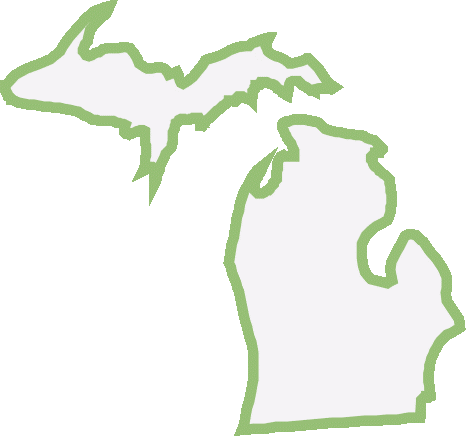Midwest State Tax Updates You May Have Missed
In sales tax, legislative updates and law changes are a constant.
It is virtually impossible to keep up with all of the changes taking place in the states where you conduct business, especially if there are more than one. But it’s very important to stay up-to-date, because when it comes to sales tax compliance and audit, ignorance is no excuse.
Sales tax law changes can have a huge impact on your business operations. If you don’t know about significant changes affecting your company, there’s no way you can adjust your operations accordingly to stay in compliance.
This blog post will explore three recent Midwestern state tax updates that could have a big impact – positive or negative – on your business.
1. Indiana Changes Its Position and Exempts Cloud Software Transactions

Effective July 1, 2018, Indiana enacted an exemption for cloud software transactions. As a result of the recently enacted legislation, a transaction in which an end user purchases, rents, leases, or licenses the right to remotely access prewritten computer software over the Internet, over private or public networks, or through wireless media is not considered to be a transaction in which prewritten computer software is delivered electronically and does not constitute a retail transaction.
Note that the exemption applies only to transactions occurring after June 30, 2018, and the legislation is scheduled to expire on July 1, 2024.
So why is this legislation important?
The intent of the legislation was to clarify the taxation of Software as a Service (SaaS) but it is a change in position. Currently, charges for accessing pre-written computer software maintained on the vendor’s, or a third party’s computer or servers, are not subject to tax when accessed electronically via the Internet if the customer is not transferred the software, does not have an ownership interest in the software, and does not control or possess the software or the server. Otherwise, the charges for remotely accessed software are currently taxable.
This legislation provides clarity and consistency regardless of whether an applet is downloaded to facilitate use of the remotely accessed software.
2. Illinois Enacts Economic Nexus Legislation Affecting Remote Sellers
 On June 4, 2018, Illinois Governor Bruce Rauner signed legislation containing economic nexus provisions. Effective October 1, 2018, remote sellers (such as online retailers) will be required to collect Illinois sales and use tax if they meet either of the following thresholds over a 12 month period:
On June 4, 2018, Illinois Governor Bruce Rauner signed legislation containing economic nexus provisions. Effective October 1, 2018, remote sellers (such as online retailers) will be required to collect Illinois sales and use tax if they meet either of the following thresholds over a 12 month period:
- Cumulative gross receipts from sales of tangible personal property or services to purchasers in Illinois are $100,000 or more; or
- The seller enters into 200 or more separate transactions for the sale of tangible personal property or services to purchasers in Illinois
Additionally, modifications have been made to the Use Tax and Service Use Tax provisions to the definitions of retailer or serviceman maintaining a place of business in the state or any like term.
If you are a remote seller and make sales to Illinois customers, this could have a huge impact on your operations. Here’s what it means for you:
- Retailers and servicemen must determine on a quarterly basis whether they meet either of the above criteria for the preceding 12-month period.
- If the retailer meets either of the criteria for a 12-month period, he or she is considered a retailer maintaining a place of business in Illinois and is required to collect and remit tax and file returns for one year.
- At the end of that one-year period, the retailer must determine whether they met either of the criteria during the preceding 12-month period, and if they do, they are required to collect and remit tax and file returns for the subsequent year.
- If at the end of a one-year period a retailer that was required to collect and remit the tax determines that he or she did not meet either of the criteria during the preceding 12-month period, they shall subsequently determine on a quarterly basis whether they meet either of the criteria for the preceding 12-month period.
That’s a lot of new responsibility to take on! But there is one important thing to note about this legislation. This provision is currently in violation of the Commerce Clause and is pending the decision in South Dakota v. Wayfair. If the U.S. Supreme Court finds for South Dakota in the case, this provision will be effective. If the Court finds for Wayfair, it is unlikely this provision will be enforced. Stay tuned as we’re monitoring the situation closely.
3. Michigan Creates a Tax Dispute Resolution Program

Michigan has recently enacted legislation that creates a tax dispute resolution program. For taxpayers contesting an assessment, this could be a huge help.
Here’s what the legislation provides for:
- Once a request for an informal conference has been timely filed, a taxpayer and the Michigan Department of Taxation can attempt to settle disputes by submitting a written settlement offer to the other party. The taxpayer must submit the written settlement offer no later than 21 days after the informal conference.
- The Michigan treasurer will then determine whether to accept, reject, or counter the offer. If the Department does not accept the offer, it has to include the factual and legal bases for its rejection or counter-offer. The taxpayer may then accept, reject, or counter the Department’s counter-offer.
- If either party accepts the other’s settlement offer or counter-offer, both parties will execute a written agreement outlining all of the terms of the settlement. If no agreement is reached, the regular informal conference process would proceed. This is great news for taxpayers as it gives them an improved way to resolve tax disputes with the state of Michigan.
Many More Midwest Changes Taking Place
These are just a few examples of significant sales tax developments that have recently taken place across the Midwest.
When you take the entire region into consideration, there are a lot of legislative changes happening that could have a real impact on your business operations. If you do business in the Midwest, you’ll want to stay on top of the big changes taking place.
 About the Author:
About the Author: